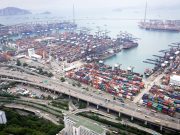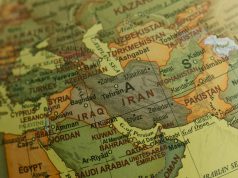
(Singapore, 05.09.2025)Thailand finds itself at another pivotal moment in its political journey as Anutin Charnvirakul, a veteran politician known for his deft deal-making, is set to become the nation’s third prime minister in a little over two years. His rise to power, slated to be confirmed by a parliamentary vote, is the result of a surprising and complex alliance forged in the wake of a political deadlock that has gripped the country.
The House of Representatives is scheduled to begin voting on Friday, and the anticipation in Bangkok is palpable. Anutin’s path to the premiership appears all but certain. His coalition has amassed the support of 289 lawmakers in the 492-member lower house, comfortably exceeding the 247 votes required for a majority. This remarkable show of unity includes backing from the progressive People’s Party, which holds the largest bloc of seats in the parliament.
Anutin, 58, will face a lone challenge from Chaikasem Nitisiri, the candidate nominated by the rival bloc led by the Pheu Thai Party. Pheu Thai is a political powerhouse with deep ties to former prime minister Thaksin Shinawatra, a figure who remains a central and often controversial force in Thai politics.
Anutin’s career has been a testament to his ability to navigate the country’s often-turbulent political currents. He has served in cabinets spanning the ideological spectrum, from the populist government of Thaksin Shinawatra to the military-led administration of coup leader Prayuth Chan-Ocha, and most recently, the government headed by Paetongtarn Shinawatra. For nearly a decade, he has played the role of a political “kingmaker,” leveraging his extensive provincial networks and business connections to broker alliances and influence outcomes. A 2009 U.S. Embassy cable released by WikiLeaks even noted his close relationship with the then-crown prince, highlighting his deep connections within Thailand’s establishment.
The current race for the premiership was set in motion by a series of dramatic events. The Constitutional Court’s decision to remove Paetongtarn Shinawatra, Thaksin’s daughter, from the prime minister’s office for ethical misconduct created a power vacuum. This ruling led to a split within her coalition, further destabilizing the political landscape. The caretaker government led by Pheu Thai then made an unsuccessful attempt to dissolve parliament, a move seen by many as a last-ditch effort to block Anutin’s ascent.
Anutin’s expected victory, however, comes with a significant condition. Under an agreement with the People’s Party, his new coalition—which includes pro-establishment parties that previously opposed the People’s Party’s predecessor, Move Forward—must dissolve parliament within four months of his swearing-in and policy statement. This condition is a strategic maneuver that could give the People’s Party, which leads opinion polls by a wide margin, a chance to increase its number of seats in a new election.
While the People’s Party is a formidable force in public opinion, it currently lacks a prime minister nominee. This is due to the dissolution of its predecessor, the Move Forward Party, and the subsequent ten-year political ban imposed on its leader, Pita Limjaroenrat.
Thailand has a long and often tumultuous history of political upheaval, with a recurring pattern of royalist judges and military generals stepping in to oust elected leaders. Paetongtarn Shinawatra’s removal marks the fifth time a premier with ties to the Shinawatra family has been dismissed by the Constitutional Court, underscoring the deep-seated divisions and power struggles that continue to shape the nation’s governance.
Thaksin’s Sudden Departure Adds Intrigue to the Political Drama
In a separate but equally dramatic turn of events, former prime minister Thaksin Shinawatra abruptly departed Thailand for Dubai on Thursday night. The sudden move, which came just hours before the crucial parliamentary vote, has added a new layer of mystery and intrigue to the country’s ongoing political crisis.
Thaksin, 76, stated in a social media post on X that he had traveled to Dubai for a medical checkup, assuring his followers that he would return in time for a scheduled court ruling next week. He explained that his original plan to fly to Singapore was thwarted by Thai immigration authorities, forcing him to reroute to Dubai, where he could consult with orthopedic and pulmonary specialists who have treated him in the past.
Thaksin’s departure is particularly notable given his history. He served as prime minister from 2001 until a military coup in 2006, after which he spent 15 years in self-imposed exile to avoid corruption charges. He made a highly anticipated return to Thailand in 2023, where he was sentenced to eight years in prison.
However, he received a royal pardon and spent just six months in a hospital before being released on parole, a deal that was part of a power-sharing agreement between his family-backed Pheu Thai Party and their former conservative rivals.
His sister, former premier Yingluck Shinawatra, also remains in exile after fleeing the country in 2017.
The Supreme Court is set to deliver a verdict on Thaksin’s legal status on September 9, a ruling that could potentially lead to his re-imprisonment. Last month, he was acquitted in a separate court case of breaching the country’s strict royal defamation laws, providing a moment of legal reprieve.
Sorawong Thienthong, the secretary-general of the Pheu Thai Party, has publicly stated that Thaksin’s travel is a private matter and that he faces no legal prohibitions on traveling abroad. Nonetheless, the timing of his departure, coinciding with the pivotal political events in Bangkok, has fueled speculation and added yet another twist to Thailand’s complex political narrative.
As Anutin Charnvirakul prepares to take the oath of office, the shadows of past political rivalries and the sudden disappearance of a central figure like Thaksin Shinawatra continue to loom large over the nation’s future.





































